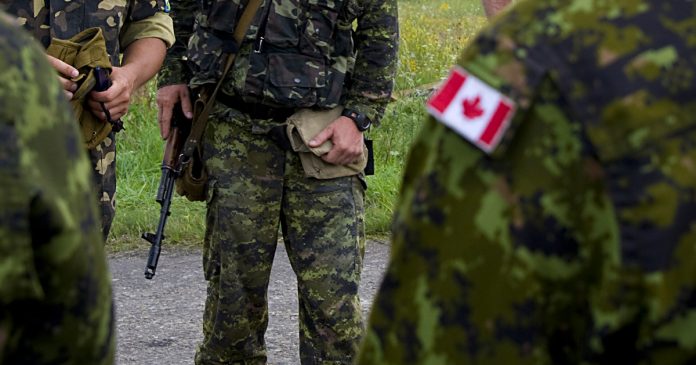Canadian soldiers deployed in Latvia as part of a NATO mission have been spending their own money on helmets and other equipment due to outdated supplies provided by the Canadian Armed Forces.
The soldiers have been forced to buy upgraded helmets with built-in hearing protection and headsets from online retailers white training abroad. They have also had to acquire their own rain gear, tactical vests and ammunition in the same way.
The private purchases reflect the frustration of the soldiers with the outdated and inadequate equipment they have been given by the army. Some of the gear, such as the CG634 helmet, dates back to the 1990s and does not meet the current standards of ballistic protection or ergonomics.
Lt.-Col. Jesse van Eijk, the Canadian battle group commander in Latvia, expressed his concern about the disparity in equipment between his troops and their allies in an email obtained by CBC News.
He wrote that it was “concerning verging on embarrassing” to see the differences in issued soldier equipment between the Canadians and the Danes. He added that most of the systems his soldiers lacked were “easily available on the open market” and not some kind of secret technology.
“In general, it was concerning verging on embarrassing to see the differences in issued soldier equipment between us and the Danes,” wrote Lt.-Col van Eijk in a May 12 email obtained by CBC News.
“This was only exacerbated by the fact they were carrying more advanced Canadian-made Colt Canada rifles, mounting more advanced Canadian Elcan DR sights, and the fact that most of the systems our soldiers lacked were easily available on the open market and not some sort of closely guarded technology.”
The Canadian defence mission in Latvia consists of more than 700 Canadian soldiers out of a total of 1,500 from various NATO countries. The effort is part of a deterrence strategy against Russia’s aggression in the region.
Besides the helmets and gear, the Canadian soldiers also face shortages of modern anti-tank weapons, systems to counter drones and a dedicated short-range air defence system.
The department has since said that it was working on procuring new helmets, body armour, weapons and other equipment for the army, but did not provide any timelines or details.
“Ensuring the safety and well-being of our members remains a top priority,” said Department of National Defence spokesperson Jessica Lamirande.
“Acquiring hearing protection for soldiers is a complex undertaking as it must balance noise reduction, weight, and the ability for users to effectively communicate.”

